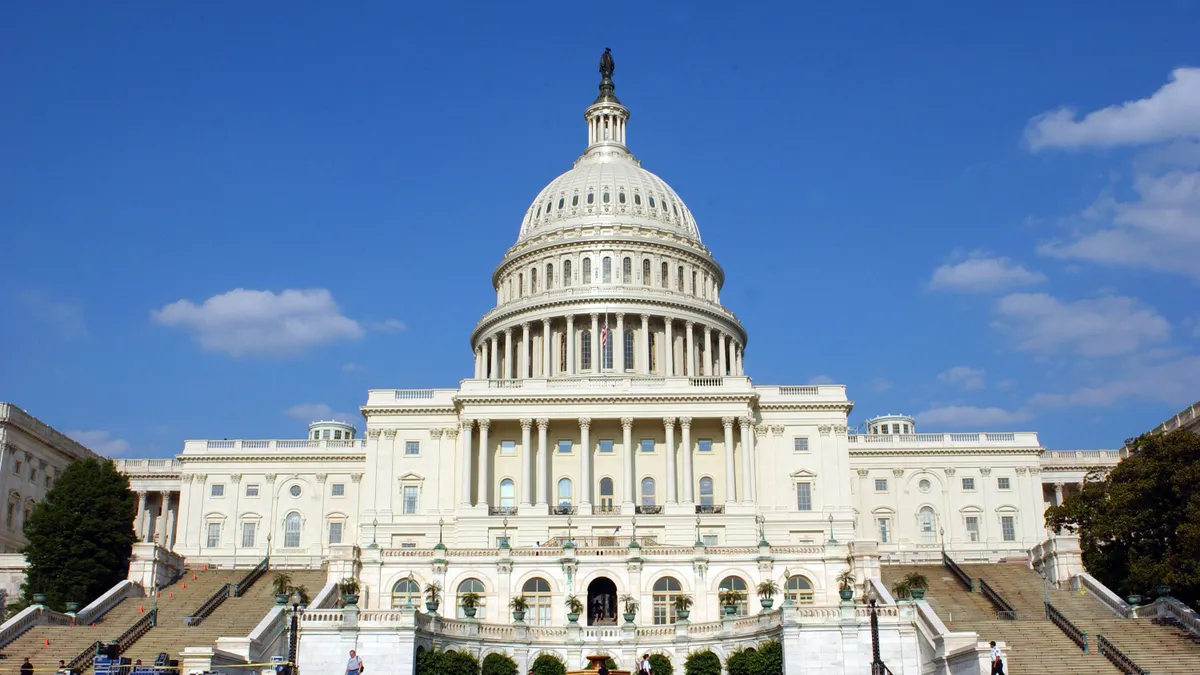From crypto regulation to auditing independence concerns and the accounting talent shortage, lawmakers in a congressional hearing this week spotlighted some of the hottest topics that financial regulators and CFOs have been grappling with this year.
Members of the House Financial Services Subcommittee on Capital Markets pressed leaders from the Financial Accounting Standards Board, the Public Accounting Oversight Board and the Financial Industry Regulatory Authority to describe their approach to regulation and asked about steps they have taken to tighten regulation that could better flag the kind of troubles that led to bank failures in early 2023 and the troubles that have roiled the crypto industry.
In kicking off the Tuesday hearing, Rep. Ann Wagner, a Republican from Missouri and the chair of the subcommittee, called the groups indispensable to capital markets. But she said “a thorough review’ was warranted, citing a new proposal from the PCAOB that would require auditors to sharpen their vigilance for fraud that she said carried a “staggering” $18.2 billion price tag as well as the potential for FASB to weigh in on sustainability reporting.
“While supporting FASB’s goal of offering valuable information to investors, we must ensure these new projects are not influenced by activists or serve as a conduit for pushing social and political agendas into generally accepted accounting principles,” Wagner said, echoing the ongoing pushback from many Republican lawmakers against the Securities and Exchange Commission’s proposed climate risk rule.
FASB Chair Richard Jones — who testified before Congress for the first time in his capacity as FASB chair — along with PCAOB Chair Erica Williams and FINRA CEO Robert Cook were mostly cautious and measured in their answers to often critical questions during the hearing.
Here are four takeaways based on some of the topics that lawmakers focused in on:
- Lessons learned from Silicon Valley Bank audit: Noting that KPMG served as the auditor for all three of the regional banks that failed earlier this year, Rep. Maxine Waters, a California Democrat, asked Williams about the steps that PCAOB has taken to ensure that bank auditors maintain their independence. Williams said the audit watchdog has added independence and ethics to its standard setting agenda, expanded the independence information in inspection reports and stepped up enforcement. She also noted that in June 2022 — before the bank collapses this year — the PCAOB issued a warning notifying that fluctuations in interest rates may pose audit risks. “I can’t talk about enforcement but know that for anyone who is violating our rules, we will hold them to account to make sure investors are protected,” she said.
- FTX and crypto still looms large: Rep. Sean Casten, a Democrat from Illinois, asked Williams to explain a PCAOB advisory issued in March warning investors against relying on third party proof of reserve reports related to crypto. Williams said some accountants issue proof of reserve reports that reflect the amount of the crypto asset held by a particular entity at “a point in time … They are in no way an audit and they’re definitely not a PCAOB audit.” Separately, Casten also asked Jones if new FASB accounting standards for crypto would apply to exchanges like FTX. “As far as the exchanges, unless they qualify for some specialized accounting, that would have encompassed them,” Jones said. However, he also noted that the FASB’s new standard was narrow and did not apply to nonfungible tokens.
- Accounting shortage remains top of mind: Wagner attacked the prudence of the PCAOB’s proposed new requirements for auditors, known as the so-called Company’s Noncompliance with Laws and Regulations or NOCLAR. The proposal would both force auditors to act as law enforcement agents and worsen the accounting shortage problem as she noted regulation has been cited as a factor making the profession less attractive. Williams is mindful of the talent shortage, noting the money the PCAOB collects via enforcement actions goes toward scholarships. In addition, she understood that lower salaries are a driver behind the accounting shortage. “That is something the firms need to address,” Williams said.
- FASB standards setting pace draws scrutiny Rep. Brad Sherman, a Democrat from California, complimented FASB for making progress in updating standards for software but criticized it for adding the crypto rule, calling the asset “a collection of pet rocks” that doesn’t belong on the balance sheet. But Sherman also asserted FASB had a lot of work ahead of it after Jones confirmed that the FASB didn’t have a project in the works to set standards for such topics as same store sales, worker turnover rate or carbon footprints. “We need more information where you write the definitions and we can rely on the numbers,” Sherman said. Jones, who did not have an opportunity to directly respond to Sherman, said in his earlier testimony that the U.S. accounting standard setter’s aggressive outreach has led to a number of new projects that were requested by investors.












